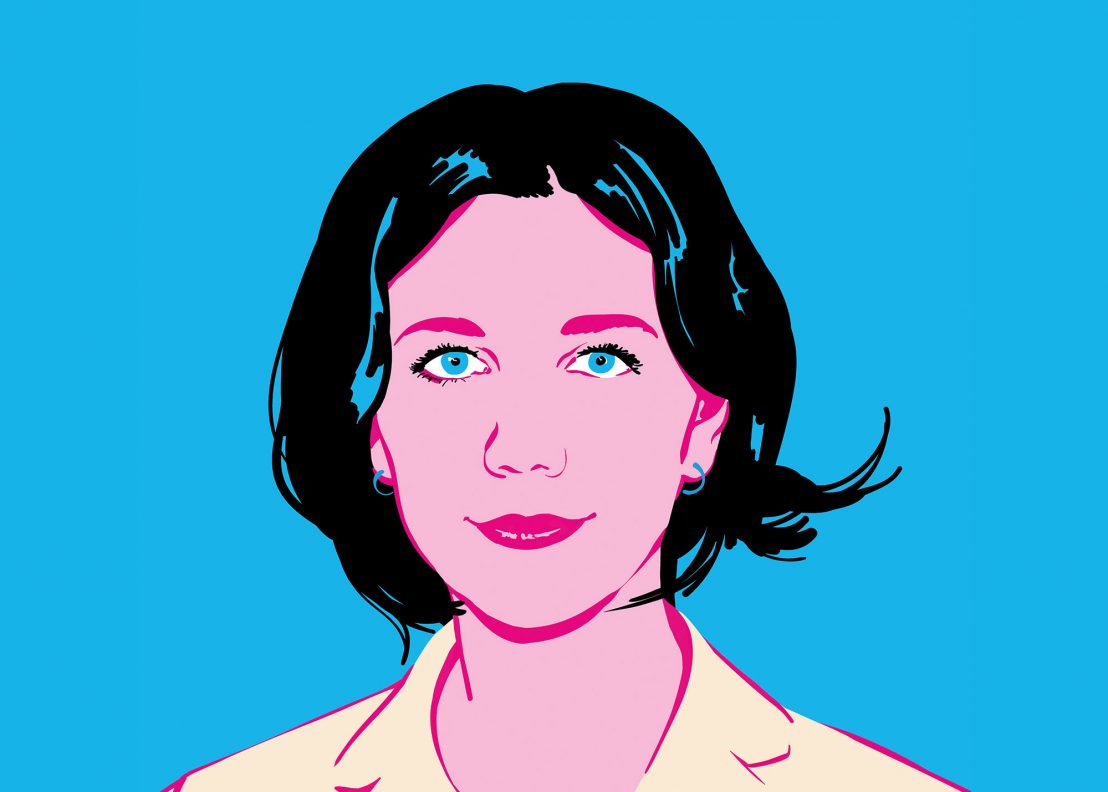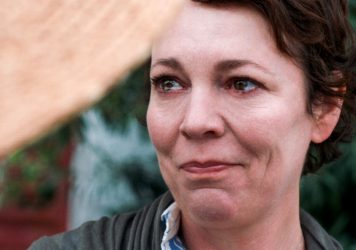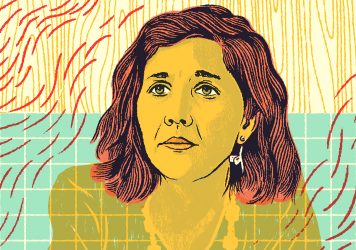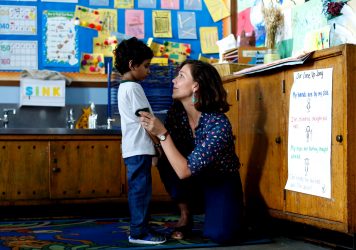
The actor on stepping behind the camera for her powerful and enigmatic Elena Ferrante adaptation, The Lost Daughter.
An accomplished actress with almost 30 years of experience to her name, Maggie Gyllenhaal has built an impressive body of work by choosing to play complex, often disagreeable characters, from Lee Holloway in Secretary to Lisa Spinelli in The Kindergarten Teacher. With her adaptation of Elena Ferrante’s novel ‘The Lost Daughter’, she uses her keen eye for the intricacies of women’s lives behind the camera, resulting in a sultry, complex directorial debut.
LWLies: As the daughter of two directors, was filmmaking something that you were always interested in?
Gyllenhaal: My dad was a director but my mom was really a writer – it wasn’t until she was in her sixties that she directed a film. I only mention that because I think, yes, looking back, I probably did always want to direct. So much of my work as an actress when I look back on it having become a director, was directorial, in terms of storytelling, in terms of why this scene in this way, how to approach it to say what I ultimately wanted the piece to say. If I’m completely honest, I think I didn’t feel entitled to even want to direct until much more recently.
The actors that move into directing often tend to be men. I don’t know if there’s less of a consideration, maybe, for them. As a woman there’s this thing in the back of your head where you don’t want to ask for more than you’re given – it’s like everything you get is a bonus.
I’ll say a few things about that. One is, so many actresses recently – Greta Gerwig, Rebecca Hall, me, Halle Berry – have directed their first film. In a way, 100 years ago, if you were a medical-minded woman you would think, ‘I’m gonna become a nurse, not a doctor.’ It’s something similar like, you’re a storyteller, you love film, you’re a woman. It’s an easier path to become an actress, a thinking actress, an actress with ideas. And there’s definitely a model for that. It’s a more difficult path – although there certainly have been women on it – to become a director. Now that there’s a real attention for making space for women to express themselves in film, maybe you will see more actresses going, ‘You know, I think I’ve always been a director,’ cause for me I do feel that way.
Can you talk a little about the female directors who inspired you throughout your career. Is there anyone you looked to when you knew you were making The Lost Daughter?
I’ve talked quite a lot about Jane Campion. When I saw The Piano I was maybe 16. A lot of people disagree with me about this in general, but I think that there is such a thing as women’s work, women’s writing, women’s filmmaking. I do think when we express ourselves as women it looks different, and it feels different to digest it as a woman. My experience of watching The Piano, I related to it. I don’t know why that image of Holly Hunter’s foot tied to the piano at the bottom of the ocean has never left me, but somehow it spoke to something in my experience that I had never spoken to before. That’s the same with Ferrante in terms of writing. Her books are saying something true, honest, about a feminine experience in the world that I had never heard expressed before, it just went in so powerfully.
I love Lucrecia Martel, I’m so inspired by her. I think I really took the confidence – she’s so not literal, which is my favourite kind of movie, my favourite kind of script to act as an actress, my favourite kind of film to watch, where you have to use your own mind, your own heart to understand emotionally what’s happening. She does that with so much confidence and grace, I love the way her films look. I also really really love Claire Denis. I was so in love with the end of Beau Travail, one of the most incredible sequences that I’ve ever seen. I actually kind of stole her credit sequence. Those are three that I really love and who influenced this particular piece of work.
You were on the jury at Cannes – what was your reaction to Titane, having just made a film about motherhood?
I had never seen a film like that before. I don’t know how much you can say in the magazine without giving away too much of the movie, but to me, going from the incredibly fascinating but much more conventional dance that she does on the car in the beginning, to the one she does on the fire engine at the end, I was like, ‘Fuck, this is amazing! Look at the spectrum of what this is offering.’ You could definitely put my film and her film together in a series about unconventional mothers!
The Lost Daughter is available on Netflix from 17 December. Read the LWLies Recommends review.
Published 14 Dec 2021

Olivia Colman delivers an acting masterclass in this off-kilter psychodrama from first-time director Maggie Gyllenhaal.

The star of The Kindergarten Teacher talks about living in the long shadow of dashed dreams.

Maggie Gyllenhaal is compelling in this rich character study about a mentor and her protégé.